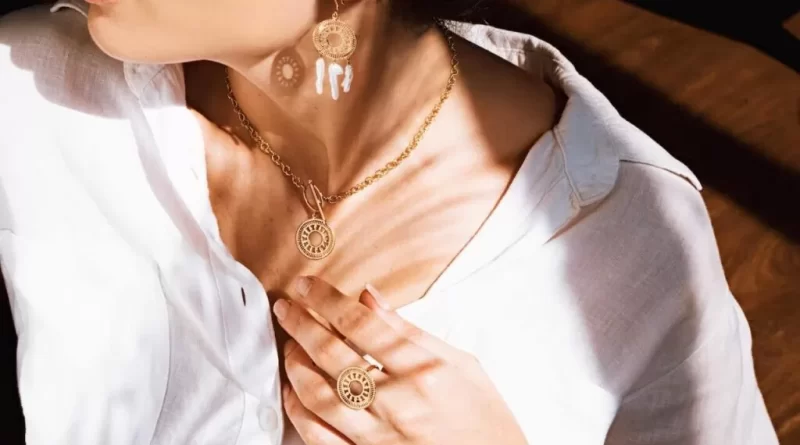How to Start a Permanent Jewelry Business: A Step-by-Step Guide
Starting a permanent jewelry business can be an exciting and rewarding venture. Whether you’re passionate about creating unique jewelry pieces or looking to turn your hobby into a profitable business, the jewelry industry offers numerous opportunities. To help you get started, here are some essential steps to follow:
1. Conduct Market Research
Before diving into the jewelry business, conducting thorough market research is crucial. This will help you understand your target audience, identify competitors, and stay updated on industry trends. Some critical aspects of market research include:
- Identifying your niche: Determine the specific type of jewelry you want to create and sell, such as fine jewelry, fashion jewelry, custom pieces, or specialized items like engagement rings.
- Analyzing your target market: Identify your ideal customers based on age, gender, income level, and style preferences.
- Studying competitors: Research other jewelry businesses, both local and online, to understand their pricing, offerings, and marketing strategies.
- Tracking trends: Stay updated on jewelry design trends, materials, and techniques that resonate with your target market.
2. Develop a Business Plan
A well-structured business plan is crucial for the success of your jewelry business. It serves as a roadmap and includes essential elements such as:
- Business Description: Explain your business concept, mission, and vision.
- Product Line: Describe the types of jewelry you plan to sell, including materials, styles, and price ranges.
- Market Analysis: Summarize your research findings, including your target market and competitors.
- Marketing Strategies: Outline your online and offline marketing and promotional efforts.
- Financial Projections: Create an economic forecast that includes startup costs, operational expenses, revenue projections, and break-even analysis.
A solid business plan can help secure funding, guide your decision-making, and keep your business on track.
3. Choose a Business Name and Legal Structure
Selecting an appropriate name for your jewelry business is essential. It should reflect your brand identity and be easy to remember. Additionally, you’ll need to decide on the legal structure of your business, such as:
- Sole Proprietorship: Suitable for solo entrepreneurs. You’re personally responsible for the business’s liabilities.
- Partnership: A partnership structure is an option if you plan to run the business with one or more partners.
- Limited Liability Company (LLC): Provides personal liability protection while offering flexibility in management.
- Corporation: Offers the most extensive liability protection but involves more complex legal and tax requirements.
Consult legal and financial professionals to determine the best structure for your circumstances.
4. Register Your Business and Obtain Licenses
Register your jewelry business with the appropriate authorities, such as your state’s secretary of state office. Also, check if you need local licenses or permits to operate legally. Compliance with legal requirements is crucial to avoid potential issues down the road.
5. Find Reliable Suppliers
Finding reliable suppliers for high-quality materials is essential for your jewelry business. Look for suppliers who offer materials like metals, gemstones, beads, and findings at reasonable prices. Establishing solid relationships with suppliers can ensure a steady supply of quality materials for your creations.
6. Create Your Product Line
Designing your jewelry line is a creative and essential step. Consider your target audience’s preferences, current fashion trends, and pricing strategies. Experiment with different materials and techniques to develop unique pieces that set your brand apart.
7. Build an Online Presence
In today’s digital age, online presence is crucial for reaching a broader audience. Create a professional website to showcase your jewelry and allow customers to purchase it online. Additionally, set up active social media accounts on Instagram, Facebook, and Pinterest to engage with potential customers and share your creations.
8. Market Your Business
Effective marketing is critical to attracting customers to your jewelry business. Consider various marketing strategies, including:
- Paid Advertising: Invest in online advertising through platforms like Google Ads and social media advertising.
- Influencer Marketing: Partner with influencers in the fashion and jewelry niche to promote your products.
- Email Marketing: Build an email list and send subscribers regular newsletters and promotional offers.
- Networking: Attend local craft fairs, jewelry exhibitions, and networking events to connect with potential customers and other professionals in the industry.
9. Provide Excellent Customer Service
Building a loyal customer base requires exceptional customer service. Ensure customers have a positive buying experience by promptly addressing inquiries, offering customization options, and providing reliable after-sales support.
Starting a permanent jewelry business requires hard work, dedication, and a passion for jewelry design. While challenges may arise, staying focused on your goals and continuously refining your craft can lead to a successful and fulfilling business venture.
Conclusion
Embarking on the journey of starting a permanent jewelry business can be a rewarding experience. Following the steps outlined in this guide, from conducting thorough market research to providing excellent customer service, you can lay a strong foundation for your jewelry venture. Remember that success in the jewelry industry often requires creativity, business acumen, and a deep understanding of your target market. You can turn your passion for jewelry into a thriving business with dedication and a commitment to quality.
FAQ: Starting a Permanent Jewelry Business
1. How much money do I need to start a jewelry business?
The startup capital required for a jewelry business can vary widely depending on factors like the scale of your operation and the types of jewelry you plan to create. Creating a detailed business plan to estimate your specific financial needs accurately is advisable.
2. Do I need a storefront to start a jewelry business?
Not necessarily. Many jewelry businesses start as online ventures, selling through websites and social media platforms. You can choose the sales channels that align with your business goals and budget.
3. What types of jewelry are the most profitable?
Profitability in the jewelry business depends on factors like market demand, production costs, and pricing strategies. Fine jewelry, custom pieces, and unique designs often increase profit margins.
4. How do I price my jewelry products?
Calculate your pricing by considering material costs, labor, overhead expenses, and desired profit margins. Research competitors’ pricing to ensure your prices are competitive in the market.
5. Can I start a jewelry business from home?
Yes, many successful jewelry businesses begin as home-based operations. Ensure your workspace is well-equipped and complies with local zoning regulations.
6. What is the best way to market a jewelry business?
Effective marketing strategies for a jewelry business include social media marketing, influencer collaborations, attending craft fairs and exhibitions, and email marketing to engage with potential customers.
7. How do I find reliable jewelry suppliers?
Research and connect with reputable jewelry suppliers through industry trade shows, online directories, and referrals from other jewelry makers.
8. What legal requirements should I know when starting a jewelry business?
Register your business, choose a legal structure, obtain necessary licenses and permits, and comply with tax regulations in your jurisdiction.
9. How can I stand out in the competitive jewelry market?
Differentiate your brand by focusing on unique designs, high-quality craftsmanship, excellent customer service, and compelling storytelling through your marketing efforts.
10. Do I need formal jewelry-making training to start a jewelry business?
While formal training can be beneficial, many successful jewelry makers are self-taught. Online tutorials, workshops, and practice can help you develop the necessary skills over time.
By addressing these frequently asked questions, you’ll better understand what it takes to start and succeed in the jewelry business.




